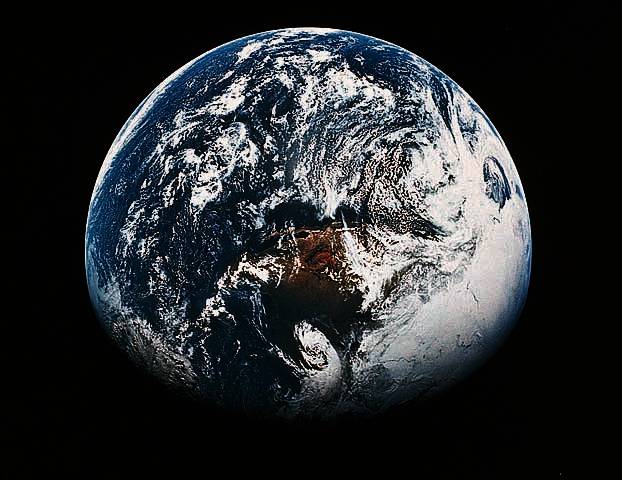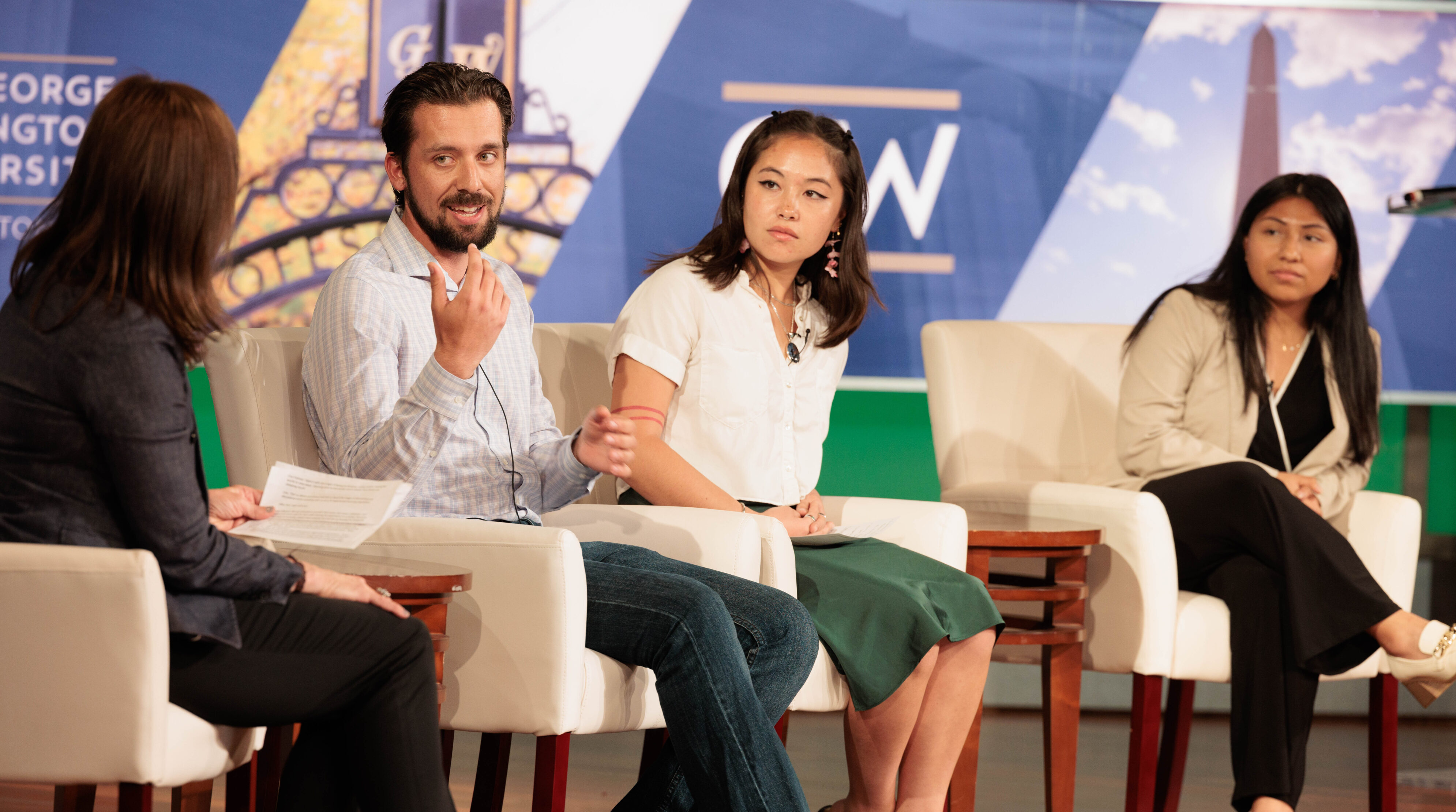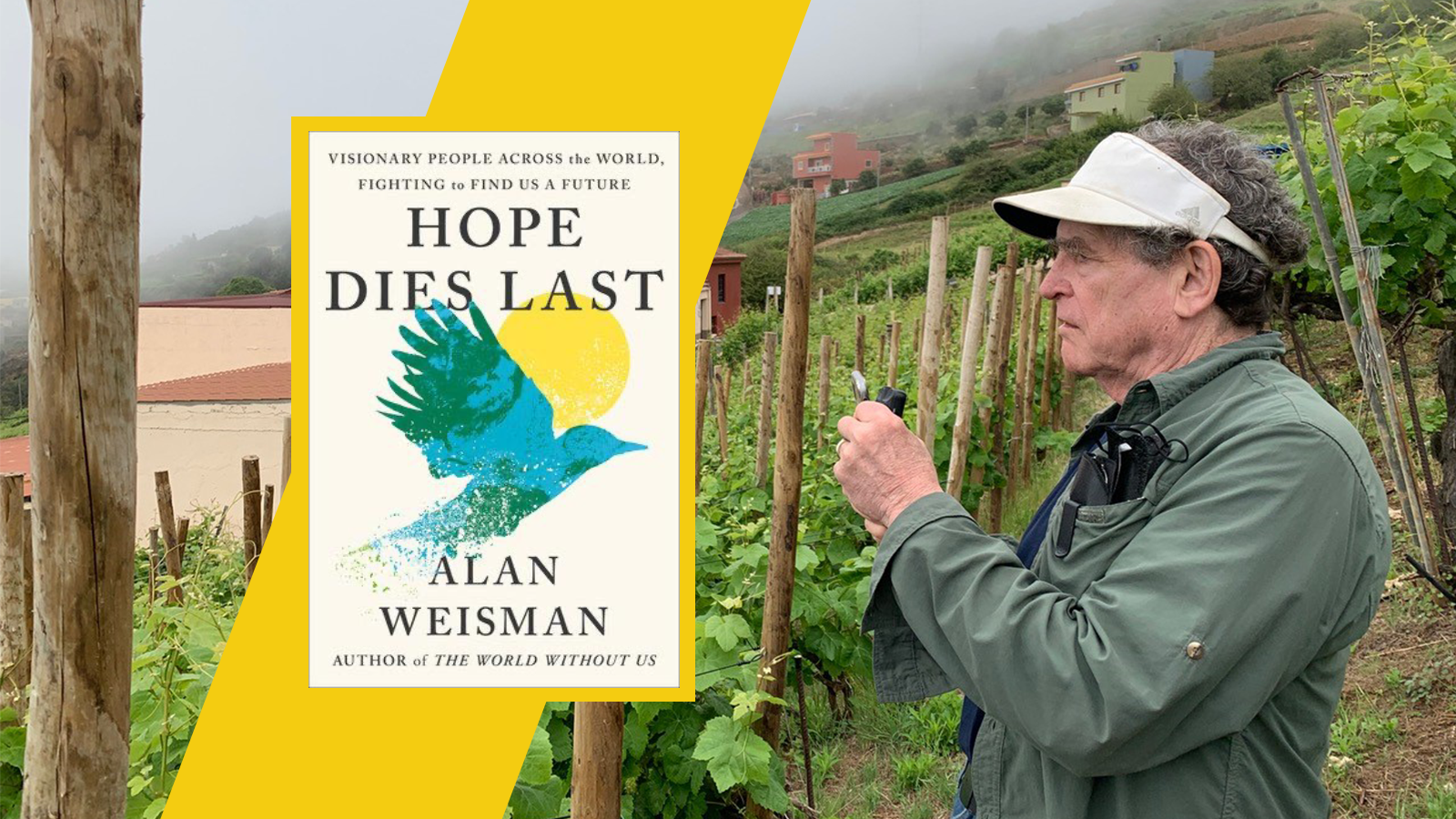
Opinion | 10 mistakes in the war on climate change

By Trammell S. Crow and Bill Shireman
There’s a new flashpoint to drive profits in the political war on climate.
Michael Shellenberger’s controversial new book, “Apocalypse Never: Why Environmental Alarmism Hurts Us All,” describes how “climate change has been polarized between those who deny it and those who exaggerate it.”
There’s no denying that climate is a polarizing political issue. Like abortion, guns, and immigration, climate is one of four wedge issues many partisan power-brokers never want to resolve. By amplifying every extreme assertion by either side, professional manipulators can keep Republican and Democratic voters far apart, in opposing media silos, where they can hate on each other. Shellenberger’s new book not only documents the divide, but intensifies it.
That’s not all his fault. Let’s face it: Politics and media demand that climate change be cast as either a full-on catastrophe or a cynical hoax. To generate attention, print and online publishers tell environmental writers to hover close to one of these two hotspots. If we want to sell books or generate headlines, we need to stay as close to the heat as we can — even if that means falling into the sun and being devoured.
It seems odd to have to say this, but climate change is a looming catastrophe, scientists overwhelmingly agree. That other ecological problems may be even worse is no cause for comfort. We have an abundance of riches — if our objective is to sell the prospect of catastrophe.
But solving environmental problems requires rational action, not panic or denial. Shellenberger is right in one respect: Crisis or not, our movement’s overwhelming focus on imminent disaster is not helpful if we want to actually avert disaster. Constant gloom-and-doom exhausts our supporters, funds our opponents, and makes the war on climate change so profitable to cynical political and media manipulators that they’d prefer to risk the end of the world, rather than sacrifice a crisis they can exploit for years.
The result is a big setback for effective action before catastrophe is upon us.
We contemplated a similar strategy when we began writing our new book. To sell our case for bipartisan climate solutions, we could either pander to the right with an attack on fear-mongering, or pander to the left by attacking skepticism and denial. Instead, we took the riskier approach: Tell a more complicated truth that doesn’t fit either narrative or congratulate either side.
Our book, “In This Together,” is not another shocking expose of the conniving left-wing statists or evil right-wing corporatists that must be stopped. It is an honest look at how to end the politically co-opted, media-friendly “war for the planet,” and save the environment instead.
Such earnest objectives grate on the nerves of most sophisticated political observers. Like the Boy Scouts and League of Women Voters, bipartisan efforts like ours seem quaint, Quixotic, and hopelessly naive. As veteran climate journalist David Roberts wrote of one of our favorite initiatives, the bipartisan Climate Leadership Council, “This is the way of the Very Sensible Centrist, an American political creature that rarely produces tangible results, but always garners heaps of praise. Many center-left Dems view it as the sine qua non of politics. But it’s utterly disconnected from anything going on in U.S. politics right now. It’s a fantasy, a trip to la-la land. It amounts to a kind of enforced naivety that centrists too often mistake for virtue.”
Roberts is a fine journalist, but his political analysis is self-defeating. True, centrist solutions are dead-on-arrival in today’s political industry. They are a threat to the gridlock that maximizes revenue for lobbyists, pollsters, communicators, media, and the elite strategists who keep voters divided so they keep their policy-making power. So long as climate protection is owned by one party, it will forever be held hostage for political gain. Rational policy will never be rational politics. Only competition between the parties — a battle for how and not whether to solve the problem — makes saving the world a sensible political strategy.
The political war on climate change — pitting progressives against conservatives — pays off quite nicely for the entrenched partisan power-brokers who keep us fighting. They make money by selling protection to vested interests. The best way to drive demand for protection is to create danger. By keeping the left and right in battle, each side intensifying the hatred and extremism of the other, they not only dominate the policymaking process — they also harvest an abundance of risk that they can deliver to their clients, and squeeze vested interests for maximum profits.
The only losers are, in the end, everybody.
Here is the simple truth we all know. Climate change is real. It is human-caused. And combined with devastating destruction of oceans, forests, and biodiversity, it is a threat to our prosperity, security, and lives — if not today, then soon, by any reasonable standard.
The political media industry has set a trap for all sides in the climate debate, and every one of us has fallen in. We’re engaged in a war that leads only to more war. The $17 billion our donor friends have allocated for climate and ocean protection won’t end the hostilities — it will drive even more dollars to our opposition, and push resolution further into the future. Ultimately, our endless war will turn a potential catastrophe into a real one — no matter how long it takes.
There is one way out, but it’s so radical few will entertain it. End the war. Join forces with past enemies. Engage in radical collaboration.
More than 7 in 10 of us can come to agreement even on the most divisive wedge issues. The political party that appeals to that 70% first will win most every race they enter — no need to raise and spend billions with that level of support.
Let’s end the war and save the planet.
Here are 10 traps environmental donors and activists are lured into, and ideas on how to free ourselves to get the job done:
MISTAKE NO. 1: SELLING CATASTROPHE
It seems to work every time. Catastrophes blamed on evil villains generate more money and media coverage, compared with narratives of hope and optimism. But these benefits come with hidden costs. Catastrophism exhausts our support base. It numbs the public to our calls-to-arms. It alienates those concerned but not alarmed.
A better way: Cultivate hope and optimism. Optimism does not raise as much money or media coverage, but it rejuvenates and broadens our base. And new methods of digital outreach can multiply the power of optimistic problem-solvers.
MISTAKE NO. 2: DEMONIZING TOO MANY ENEMIES
Demonization builds opposition to our proposals. Every dollar devoted to demonization generates an opposition dollar. The more demons we target, the more enemies we attract. Corporate leaders are trapped in the debt-and-consumption machine, just as much as you and I are. They exploit it, as do we, and they profit more than most of us. But they can’t change it alone.
A better way: The enemy isn’t corporations, capitalism, government, or consumers. The enemy is the entrenched system that drives overproduction and overconsumption. We’re all part of that system. We need to engage stakeholders across the system to understand our mutual struggles and work together for change.
MISTAKE NO. 3: SPEAKING ONLY TO THE LEFT
The right and left are natural partners. Their differences are real, but resolvable—and often complementary.
Trying to persuade conservatives to adopt progressive points of view is often futile.
A better way: Speak with conservatives in their own language. Understand their worldview. Respect their desire to protect what we have. Develop policy options that reflect their priorities. It won’t generate as much media, and the power brokers will threaten to abandon you, but that’s the cost of earning broad support.
MISTAKE NO. 4: DISMISSING CONSERVATION AND STEWARDSHIP
The left, believing that people are selfless and nature is supportive, tends toward a preservationist agenda that treats humans as invaders of nature. Hunters, fishers, farmers, and ranchers are often regarded as enemies of nature, when considered from this point of view.
The right, believing that people are selfish and nature poses risks, tends toward a conservationist agenda that treats humans as stewards of the land. Hunters, fishers, farmers, and ranchers are good stewards who love the land and know it more intimately than most coastal progressives. They are the overlooked half of the environmental movement, only recently being rediscovered.
A better way: Celebrate hunters and fishers. Learn how many farmers and ranchers are shifting to regenerative agriculture. Their forebears fed ours for millennia. Invite them to be central players in reducing damage to nature.
MISTAKE NO. 5: CONDEMNING CLIMATE DENIAL
A wedge has been driven deep between the right and left because it’s profitable for the media and political industries. The fear and hate they are generating is extreme. We feed into it, when we focus on fear, and drive hatred of our adversaries, even those who deny climate change.
A better way: The best remedy for climate denial is respect for conservative principles and acknowledgment that overconsumption threatens both our ecological and economic foundations. Denial will dissipate when our solutions are economically sustainable.
MISTAKE NO. 6: ALIGNING TIGHTLY WITH DEMOCRATS
Over 70% of the public is with us. Aligning with either party turns our majority into a minority. It makes victory impossible. Any cause or community dependent on just one party is a slave to that party. The Democratic Party will delay effective climate action until after the next election. There is always a next election. The only way to win is with a bipartisan coalition.
A better way: Grow an authentic bipartisan coalition where conservatives are free to advance their ideas for meeting the climate crisis, without sacrificing the economy. Challenge conservative donors to join the cause, and match their commitments to climate actions that respect conservative principles.
MISTAKE NO. 7: OPPOSING CORPORATISM WITH STATISM
Big corporations have too much-concentrated power. The federal government does too. Corporations and governments grow together. Conveniently, the warrior left fights corporate power by building government power, while the warrior right fights government power by expanding corporate power. Power brokers on both sides just smile.
A better way: Use markets before mandates. Support effective corporate campaigns. Mobilize activists and consumers to avoid companies that aren’t part of the solution. When companies step up, reward them, with clear positive recognition their competitors will notice. Above all, use prices to prevent pollution. Support revenue-neutral carbon prices, as advocated by groups like Climate Leadership Council and Citizens Climate Lobby.
MISTAKE NO. 8: JUST BUYING ACCESS AND INFLUENCE
It’s tempting to play the inside game, and buy access and influence so politicians will vote for clean energy. Some of this will likely be necessary. But too much can backfire in two ways. First, the cost of democracy will rise. When clean energy bids up the cost of access, their competitors can match their bids. The result is a more expensive stalemate. Second, the inside game is rigged in favor of the entrenched. It’s not just the fossil fuel sector that’s opposing change. It’s hundreds of powerful players and the political pros who take their money. They can overwhelm any team we field. Our democracy is rigged to resist change, not encourage it. Buying access can protect past gains, but it can’t win many new ones.
A better way: End-run the power-brokers. Invade from two directions at once. Organize the left and right together.
MISTAKE NO. 9: SUING THE BASTARDS
Fossil fuels aren’t like tobacco. They helped build the industrial economy, overcome the Depression, and defeat fascism. They spawned the technologies that can gradually replace them. Suing the tobacco industry didn’t destroy tobacco. It simply drove the industry into less democratic nations. It feels good to sue the bastards. But it just creates more bastards.
A better way: Stop creating bastards. Challenge fossil fuel companies to put real resources behind their commitments — lobbying resources that can shift the Republican Party’s position on climate, and compel Democrats to collaborate on real solutions. Champion BP for its historic shift from energy products to energy services — a business model that could change everything. Support the carbon pricing proposals of ExxonMobil and ConocoPhillips — a policy coalition that could break the stalemate.
MISTAKE NO. 10: DECLARING WAR ON CLIMATE CHANGE
War is supposed to be the last resort. But we’ve made it the first. War is built into our political genes. Whenever we’re serious about attacking a problem, we declare war on it. We’ve declared Wars on Poverty, Cancer, Drugs, Terror, and Hunger. Now we’ve launched a War on Climate Change. Wars are profitable for media and campaign strategists, but they rarely solve problems. And the war to save climate is doing just the opposite. It is exhausting our base, discouraging recruits, and increasing the size and power of opposing armies. Climate change is not a challenge that can be won by war. Its systemic cause is an economy and culture addicted to overconsumption. The remedy is the very opposite of war. We need to come together to create, not destroy.
A better way: Stop the war. Start creating. Engage capitalists, activists, conservatives, progressives, and libertarians. Explore solutions that apply the best ideas from all of them. End-run the debt-and-consumption machine. Create evolutionary change.
WHAT CAN YOU DO TO HELP?
You can start by signing our Declaration of Interdependence. Then let’s compete as our founders intended, to bring the best of the right and left together, meet the climate challenge, and move America forward.
—
ABOUT THE AUTHORS:
Trammell S. Crow is a Dallas, Texas-based businessman, philanthropist, entrepreneur and innovative leader in business development and operations. He is the Founder of Earth Day Texas, and is on the Center for Climate and Energy Solutions (C2ES) Board of Directors.
Bill Shireman is a social entrepreneur, environmental policy innovator, and rare San Francisco Republican. He brings together people from all sides of the political spectrum. He is president of the nonprofit Future 500 and teaches leadership and negotiations at the UC Berkeley Haas Business School.




















